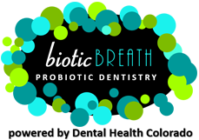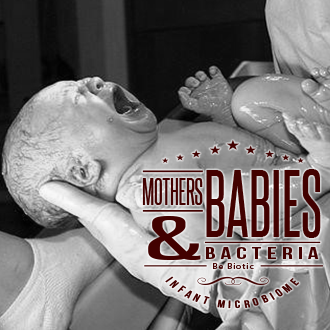


Building Your Microbiome from Birth: We inherit all our human DNA from our parents, but that only accounts for 10% of the cells within our bodies. The other 90% is bacterial, and how we get that portion of our individualized microbiome is more complicated.
When we are babies in the womb, we exist in a nearly sterile environment. Unable to eat or even breath on our own, we get everything we need from our mother’s blood, including oxygen and nutrients.
Bacteria Migrate to Contact Areas: When we are finally birthed, most of us make our way out through the birth canal, where we get bathed in bacteria that have collected there for precisely that purpose. These vaginal bacteria begin the development of our own microbiome and immune system, and are joined by other bacteria that have migrated to the mother’s breast milk and skin, getting transferred during breast feeding and early skin-to-skin contact with our mothers.
You Won’t Believe This: Here’s another fact that reinforces the amazing bacterial symbiosis that characterizes our human life – some of the bacteria in breast milk are indigestible by our human bodies and exist strictly to nourish bacteria critical to our early development. In fact, every one of these seemingly independent interactions in childbirth contributes to the advancement of the integral relationship we maintain with bacteria; a relationship that helps keep us healthy throughout our lives.
Note on C-Sections: There is some evidence indicating that births by Cesarean section may negatively impact a baby’s immune system development. Researchers have been studying potential remedies to that unintended outcome, which affects 32% of babies born today. The good news is that there has been much progress made along those lines recently.
A growing number of studies indicate that by slathering babies just after birth with a gauze pad soaked in the microbes from their mothers’ birth canal, the mouth, gut and skin microbes of those slathered C-section babies looked much more similar to those of babies delivered vaginally than those who weren’t swabbed in their first month of life, the researchers reported. That means that this possible intervention technique might help to restore a more health-promoting microbiome and lead to improved health outcomes for the baby’s life, despite its non-vaginal birth.
Pregnancy Hormones and Gum Disease: Pregnancy causes hormonal changes that increase your risk for developing oral health problems like gingivitis (inflammation of the gums) and periodontitis (full-blown gum disease). As a result of varying hormone levels, 40% of women will develop gingivitis sometime during their pregnancy — a condition called pregnancy gingivitis.
The increased level of progesterone in pregnancy may make it easier for certain gingivitis-causing bacteria to grow, as well as make the gum tissue more sensitive to plaque, and exaggerate the body’s response to the toxins that are released from that plaque.
What’s more, if you already have significant gum disease, being pregnant may make it worse. At least a couple of major studies have shown that there is also a link between gum disease and premature birth. Researchers of one study, who published their results in The Journal of the American Dental Association, found that pregnant women with chronic gum disease were four to seven times more likely to deliver premature (before gestational week 37) and underweight babies than mothers with healthy gums.

Knowledge is Power: All of this rather grim news points to the importance of being extra diligent during pregnancy at keeping one’s mouth clean. The need for increased frequency of professional cleanings during this time, to help keep harmful, plaque bacteria from overwhelming a mother’s mouth, cannot be overemphasized. And once a child is born, there are a wealth of studies to indicate that specific probiotic bacteria can result in positive outcomes regarding cavity prevention and other systemic health issues in children.
References:
Microbirth: Revealing the Microscopic Secrets of Childbirth
Building Your Microbiome from Birth
Pregnancy Gingivitis and Pregnancy Tumors
Infant Probiotic Use Reduces Risk of Gastrointestinal Disorders
